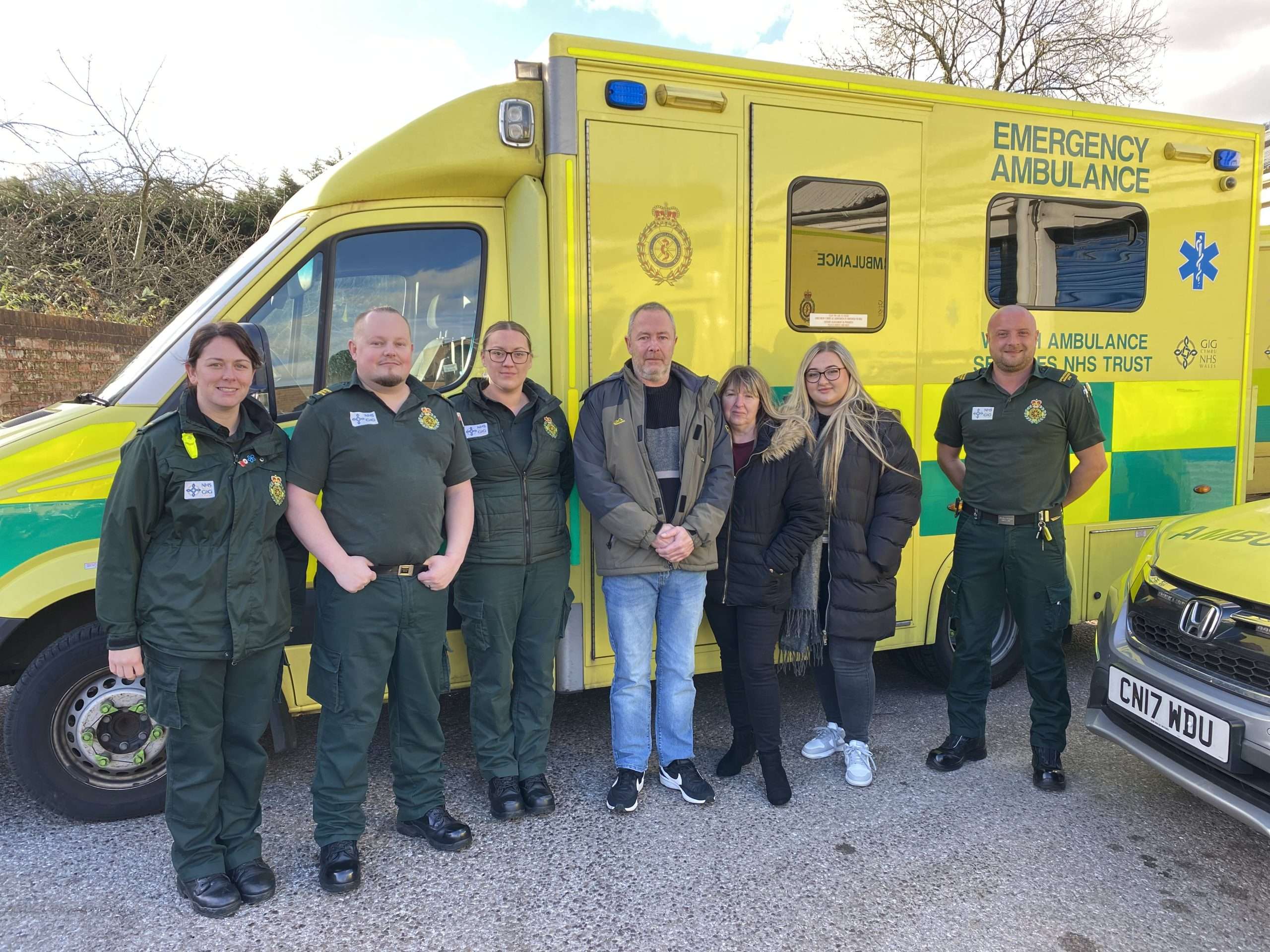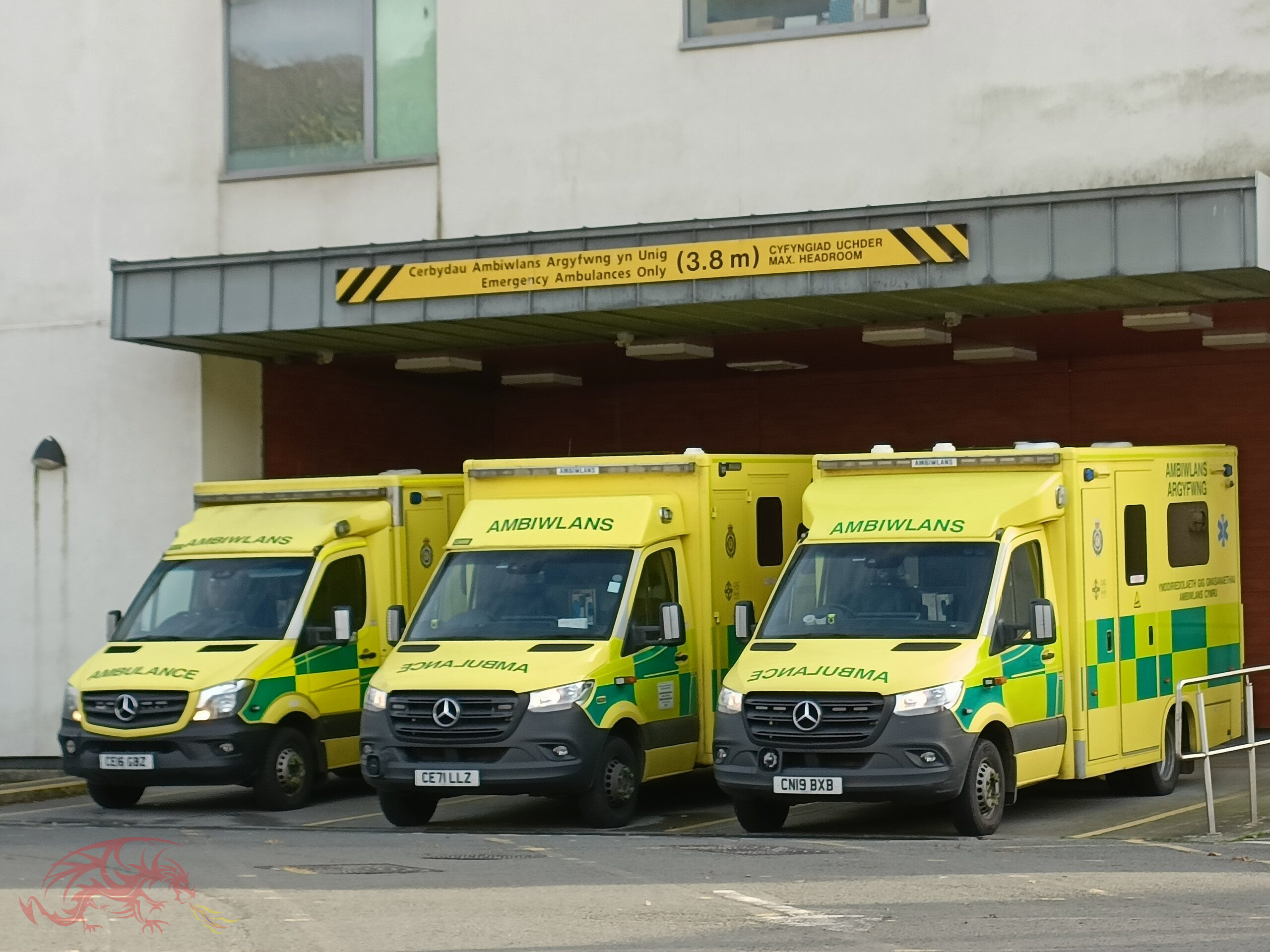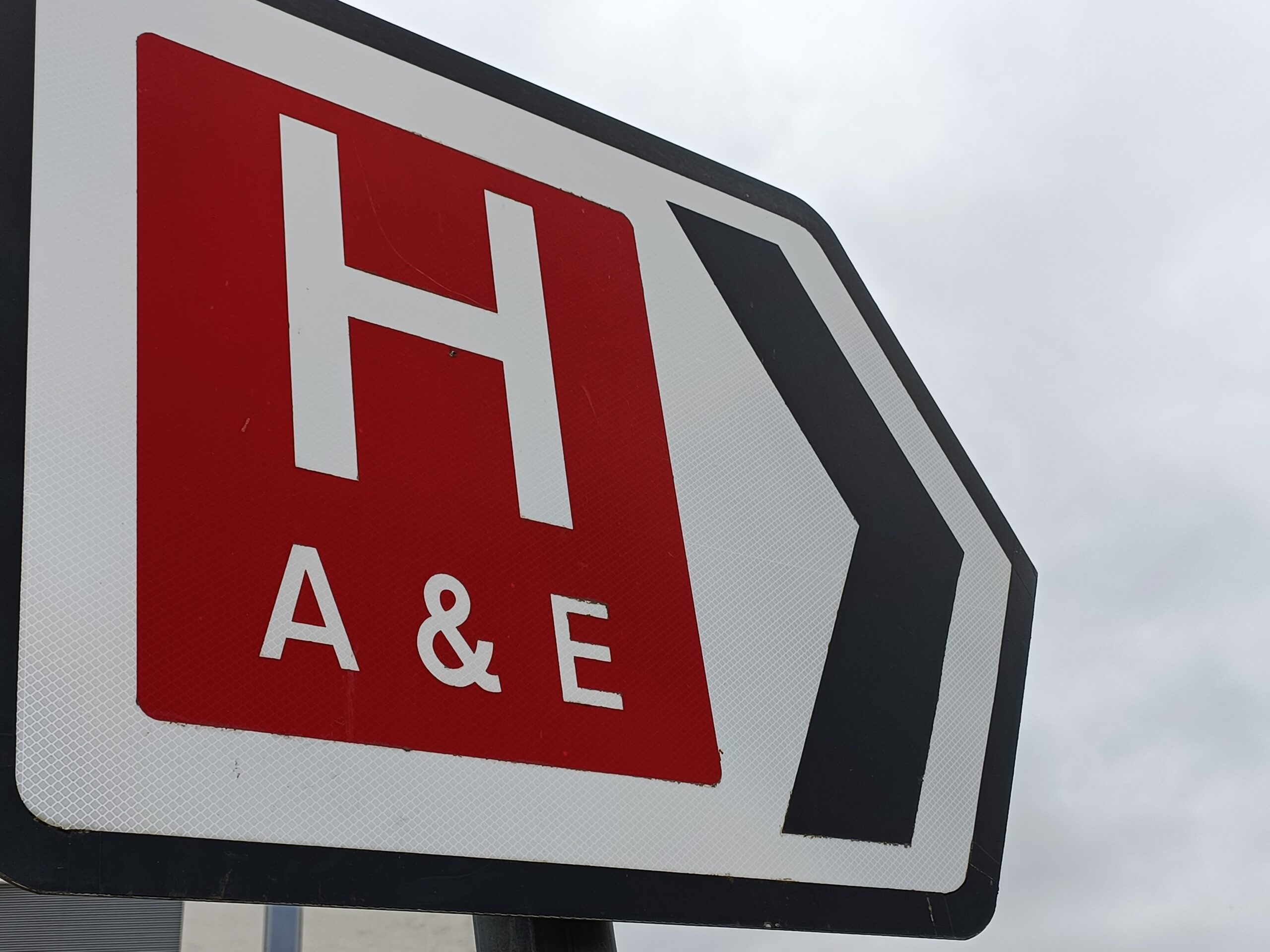It was a Saturday morning in September when 50-year-old delivery driver Neil Jones (pictured centre) collapsed at home without warning.
Recognising he was in trouble, his partner Pam Gregory called 999.
As Neil stopped breathing, Pam gave CPR to her partner of 30 years on the living room floor.
Click here to listen to the 999 call for Neil: http://tinyurl.com/42enhzps
Pam, 55, said: “It was a Saturday morning and we were just getting up and out of bed.
“Neil had put the kettle on to make us a cup of tea, then all I could hear was this gasping.
“I could tell from his eyes that there was ‘no-one at home’ so to speak, so I called 999 because I thought he was having a stroke initially.
“When the call handler told me to get Neil on the floor, I chucked the dogs out of the room and ran into the street to shout for help from a neighbour.
“I’ve done lots of first aid courses in the past having worked with children, but nothing really prepares you for having to do CPR on your partner.”
Neil said: “I can’t remember anything from that day, but I can remember not feeling quite right for about a week before it happened.
“I had some chest pain but being a typical bloke, I just ignored it, thinking it was heartburn.
“How wrong I was.”
When someone has a cardiac arrest, they collapse and become unresponsive.
They either stop breathing entirely, or they may take gasping or infrequent breaths for a few minutes, which can be misinterpreted as snoring.
If you see someone having a cardiac arrest, phone 999 and start CPR.
An ambulance call handler will tell you where your nearest defibrillator is.
Call handler Emily Ashe took Pam’s 999 call from the Welsh Ambulance Service control room in Llanfairfechan, Conwy.
She said: “As call handlers, you really feel for people in a cardiac arrest scenario because it’s so upsetting, but our job is to keep them calm and have them carry out our instructions.
“Very basic knowledge of first aid can be so helpful but even without it, we’ll talk you through every step.
“Another tip is to try and find out where your nearest defibrillator is, both to your home and your workplace.
“Every second counts in a cardiac arrest, and it could be the difference between life or death.
“The calls we take are back-to-back, so you don’t tend to remember a lot of them, but this one stands out because of the parrot.”
The couple’s 13-year-old Amazon parrot, Taz, developed a fondness for paramedic Zoey Silva, who was the first to arrive on scene.
Zoey is a Cymru High Acuity Response Unit (CHARU) paramedic with additional skills and equipment which enable her to deliver more advanced care to patients.
More than 100 CHARU paramedics operate pan-Wales responding to the most urgent calls, including cardiac arrests, road traffic collisions, major trauma and maternity emergencies.
Zoey, who is based in Hawthorn, said: “I remember the job well, because it was the hottest day of the year, and when I entered the property, Pam was doing CPR on the floor.
“I took over the CPR and attached our ‘LUCAS’ device to Neil, which delivers mechanical chest compressions to people in cardiac arrest.
“I also gave him a series of shocks with a defibrillator to give him the best chance of survival.
“My lasting memory of that job was that parrot which landed on my head during the CPR.”
Zoey was backed up by operations manager Mike Howells, paramedic Charlotte Plank and emergency medical technician Simon Hyatt.
Simon said: “Luckily, it didn’t take long before we got some respiratory effort from Neil, which is testament to the good quality CPR he had prior to our arrival.
“Early CPR can mean the difference between someone surviving, or not.
“If a bystander can start the chain of survival before we get there, it’s half the battle.”
Charlotte added: “This was the first cardiac arrest I attended after my maternity leave, and I felt so proud to be part of this team effort.
“To hear that Neil survived put the biggest smile on my face.”
Advanced critical care support was delivered by the Emergency Medical Retrieval and Transfer Service in a Wales Air Ambulance charity helicopter, and Neil was taken to the University Hospital of Wales, where he was fitted with two stents.
He spent five weeks in recovery, three days of which were in intensive care.
Yesterday, he was reunited with the ambulance crew at Hawthorn Ambulance Station.
The father-of-two said: “To my knowledge, I didn’t have any pre-existing conditions, but my dad passed away aged 47 of a heart attack.
“I was also a heavy smoker, but I’ve given up completely now.
“I’ve changed my diet, I walk every day and I’m also having physiotherapy to build my strength back up having been laid up in hospital for so long.
“I’ve had a second chance at life, and I can’t thank these guys enough.”
The Resuscitation Council UK has produced a step-by-step guide to doing CPR:
How to do CPR | Resuscitation Council UK
All new and existing defibrillators must be registered on the national defibrillator network The Circuit so that 999 call handlers can see their location:
The Circuit – the national defibrillator network
The Welsh Ambulance Service successfully resuscitated almost a quarter (23.8 per cent) of its out-of-hospital cardiac arrest patients last August – its highest ever number since records began, giving these patients the very best chance of survival.







